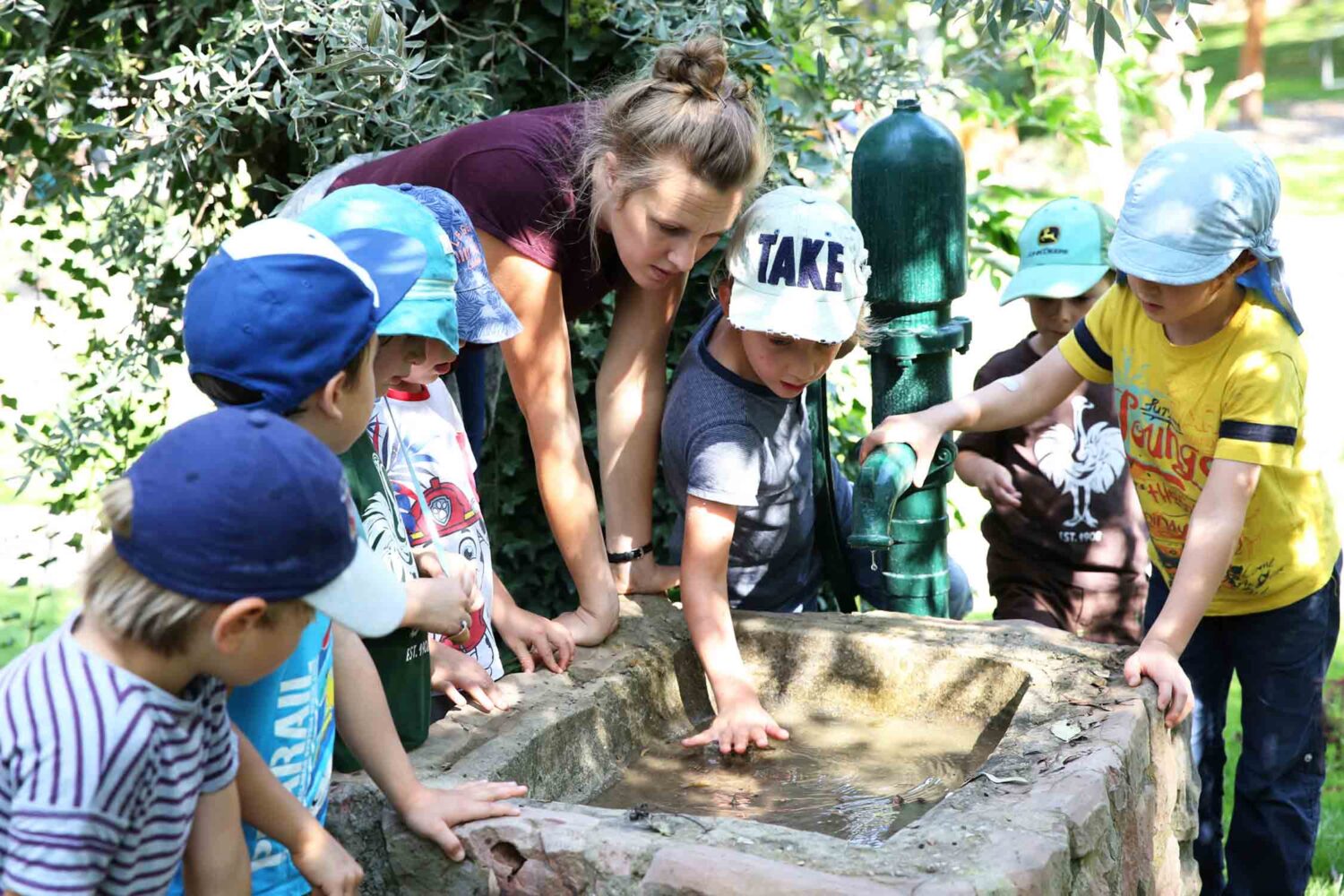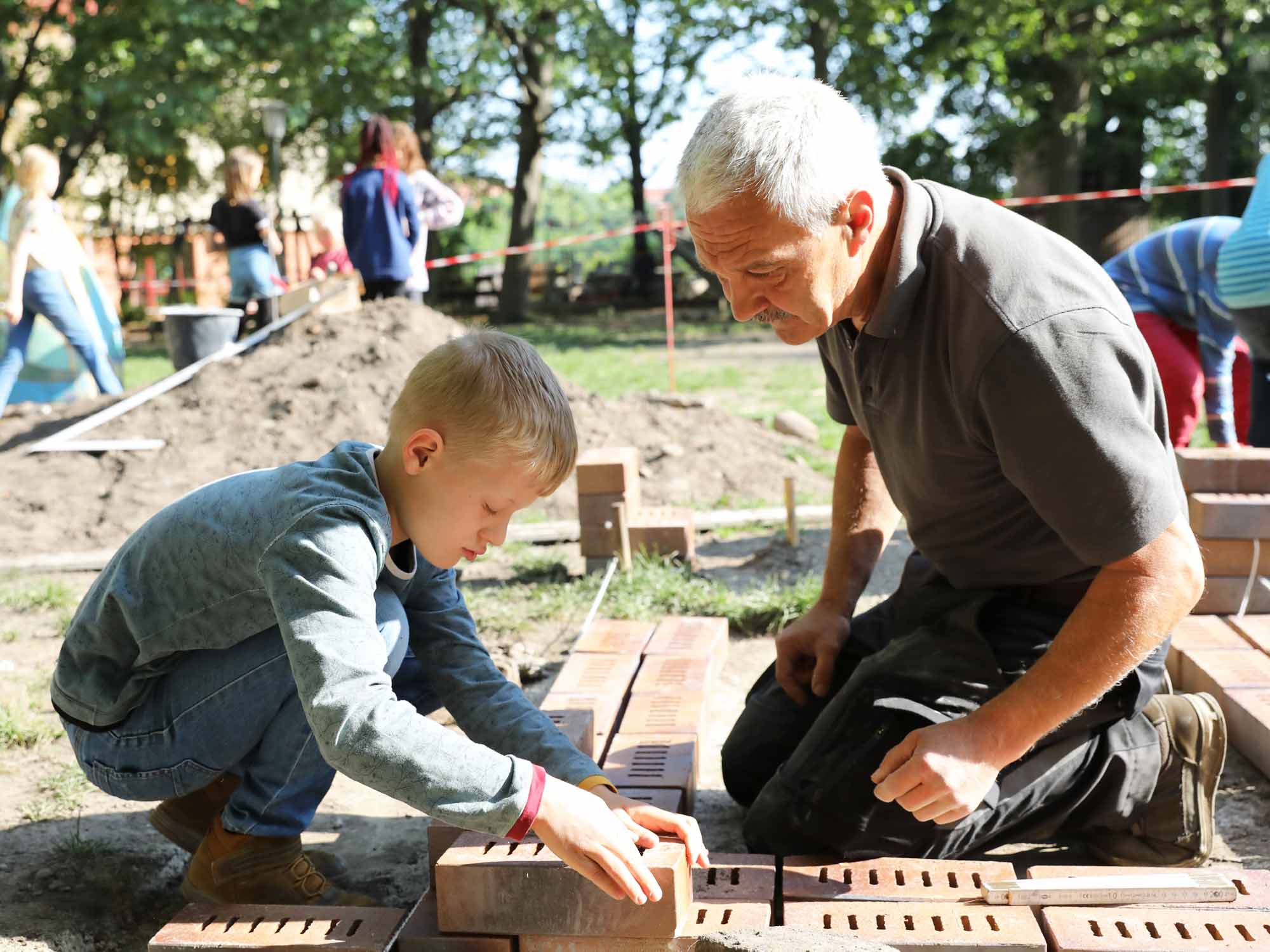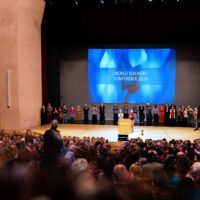It has been ten years since I decided to articulate a philosophical anthropology – an understanding of the fundamental situation of the human being – and to publish the results of these studies in the form of essays.

That resulted in La resistència íntima (The Intimate Resistance, 2015), then La penúltima bondat (The Penultimate Goodness, 2018) and finally Humà, més humà (Human More Human, 2021). As I write these lines, I’m working intently on the volume that will appear in 2024. Luckily, these works are being translated and will also appear in Italian, Portuguese, English and German. What follows is a sketch – a synthesis taken from these works – intended primarily for oral presentation.
I can summarize the educational situation like this: There is a home because there is weather: exposure to the elements requires shelter. There is a school because there is a world: the world asks for mindfulness. There is a home and there is a school because through shelter and mindfulness each individual can go their own way and mature to bear fruit. What kind of fruit? That of more homes and more world.
What is valuable is always threatened. The nature of the threat varies throughout history. At present, this threat targets the ‘place’ of education as much as it does what it means to be human. The most striking component of the current threat stems from standardization. The world today is not fond of distinctions: it prefers to promote homogeneous spaces rather than ‘places’. A home is a place – as is a theater, and a temple – and a school is also a place.
For a place to come into being, it requires more than just material demarcation; what is essential is the sense of what occurs there, what comes about there. Something must happen that is different in meaning from what happens outside. Not only that, but resistance is necessary to defend this sense against the indiscriminate forces that erase it. At present, these forces are threefold: an economist-consumerist ideology focused on results, production, and the colonization of language; an idealism of the technological (an entirely new kind of dualism); and an acceleration (the antonym of which is not slowness but, rather, having time).
I call the educational enclave that resists what dominates it ‘altertopia’. (Foucault spoke of ‘heterotopia’, intending something not quite the same but similar.) Altertopia includes ‘alterchrony’.
However, as I’ve said, what it means to be human is also threatened – in this case, by ignorance, lack of understanding, and ideologies like transhumanism with its demagogic flight into the future. Here resistance consists of emphasizing our essential and almost sole responsibility: to nurture what is human in the human being, that is, to ensure that the human becomes even more human – not in going beyond the human, but in going even deeper into the human in the human: yes, in making the human more human.
Hence the advisability of thinking radically again, of avoiding labels and empty slogans. To cultivate the most human in the human presupposes having a definition of ‘human’. But is such a definition even possible? And if so, what definition would be tenable? What is deepest cannot be defined, but an approximation might be possible – approaching it rather than defining it, or defining by approaching. This is a rather modest (and by no means dogmatic or presumptuous) form of definition.
Who is the human? Someone. Someone who deserves a name, who receives a name, who is here, comes from nowhere, is the beginning. Someone who sees that they can, that they are capable, and furthermore, that they have been increasing their technical abilities exponentially. But is capacity – strength – the innermost essence of the human being?
Humans Can
Humans do not distinguish themselves by physical strength but rather by ingenuity, the multiplier of their strength. Their ‘technical’ ability makes it possible for them to go from adapting to a situation to almost completely transforming it; they create a world upon the world. From the primitive instrumentalization of a bone or a stone to the construction of today’s most sophisticated technological systems, the same path has been followed – and the passage took the blink of an eye. It is thus understandable that in philosophical, anthropological, and historical discourses, ‘ability’ as a noun – but above all ‘to be able’ as a verb – has been and continues to be the most common way to characterize ourselves.
It is undoubtedly Nietzsche who pays the most attention to the vitality in humans known as power or capacity. In one of his many moments of inspiration, he defines the human as an animal capable of promise (Genealogy of Morals, beginning of Part Two) and then offers this brilliant definition: the ability to promise is a memory of the will. Consider this closely: the ‘memory of the will’ is a faculty or power that the human exercises over that which is the most unconquerable, namely the future. A promise is revealed to be the intention to claim mastery over oneself and the future – the intention to continue wanting what one wants and declares in this present moment.
A small aside: It is evident, in speaking of a promise, that we are not just referring to that which has this explicit form. A promise can easily be implicit in the manner of speaking, acting, or being present: it is my gesture projected onto the uncertainty of the future. It is any gesture that says, “whatever happens, I will be there.”
Humans Respond
Let’s not let the well-deserved impact of Nietzsche’s words stop us from noticing a significant omission. How is it possible that in the in-depth analysis of the promise, the other, the one to whom the promise is addressed, hardly comes up? Nietzsche presupposes that the promise springs spontaneously from the self that strives for sovereignty. Is this not a crucial point that should be understood differently?
Human action is above all responsive. More radical than the “I can” is the I that, when something happens to it, responds. Ability is not spontaneity but a response to what happens to us. Promise is undoubtedly the response to a wound. The mother is a promise for the child, as one brother is the promise for the other, the beloved for the beloved. I can be a promise for my son, because my son has, first and foremost, happened to me in a very special way. So the promise expresses my ability, but even more, what has happened to me. In fact, my ability is forged from what happens to me.
Who promises? Who forgives? Who experiences the unforgettable? Well, precisely one who is touched. This expression is suggestive: as if what affects us the most is closest to the sense of touch, to contact, to the skin. It is not surprising then, that the skin – along with the heart – is a symbol of sensitivity. It is true that every human being is a beginning that begins, but begins out of commotion, out of disturbance. Something happens to us – and transcends us – and we respond. This is the fundamental structure of subjectivity.
Inhumanity is Mute
The sensitivity of the skin or the sense of touch are therefore symbols of openness and receptivity. This is the litany that needs repeating: The opposite of being open is being closed, and being closed means indifference. Lack of humanity is found in a lack of sensitivity, of tact, and in coldness and indifference. Too little humanity is the prologue to inhumanity. Decrease of humanity might be consistent with a certain aesthetic pleasure or even cultural refinement, but the essential defect in such refinement eventually becomes apparent: sooner or later the coldness cannot be disguised.
As part of same litany, we need to repeat an indispensable add-on: Inhumanity is mute, because any words that may accompany it are not a response, are not words. Indeed, listening is like touch: the incoming word touches us. To know how to listen is to let oneself be touched, and we can really speak only when we have listened. The word that comes enters as much through the ear as it does through the permeability of the skin. The word coming towards us, touching us, does not silence us, does not make us mute. On the contrary, it makes us responsible – it asks for a response. The incoming word does not impose itself on our word, it gives you yours. Even silence is appropriate for one who responds.
The human being is characterized by the modality of sensation, which consists of such intensity that it causes a kind of folding. If we imagine sensing as a function that grows upwards, then at a certain point it reaches such a height that it reverts downwards again. The direct line of sensing has folded back on itself, leaving a small gap in between. We find a quantitative representation leading to a qualitative one: the amplitude circumscribed by both lines and the small gap that is created between them. We can understand this by analogy with the image of our vocal cords, which are not actually cords but rather folds laying side by side, making the miracle of the voice possible. The same thing happens with sensation. The folding of sensation is the feeling of sensation. The folding of sensation means not only more affecting but also a kind of affecting of the affection; a deep affecting that touches the heart. The amplification of sensation goes from the skin to the heart and from the heart to the skin. The folding of sensation evokes an amplification that allows things that happen to us to go all the way to the heart (the truth is, things happen to us because they go all the way to the heart). It is not by chance that skin and heart are the symbols of being affected, from the skin to the heart.
The folded feeling – the sensibility – becomes ‘spiritual’ through what it is able to sense. We can be as touched by beauty and goodness as by suffering and death of the other. The folding line of sensation does not result in more acuity (a hawk’s vision, a whale’s hearing, and a dog’s sense of smell are far superior to a human’s), but in more vulnerability and an increased capacity to receive and to be hurt. The heart is the symbol of sensitivity and for this reason the quintessence of the human. It synthesizes being touched, being affected and goodness, and from that we get the expressions: ‘with all my soul’ or ‘with all my heart’. Sensitivity and wisdom. People who act from the heart are wise and the best memory is the kind one, the one carried in the heart.
If one essential aspect of the human is this sensitivity-openness-permeability, the other, inseparable from the first, is the affection or the fundamental effects of affecting. I speak of being affected, shaken, fundamentally wounded, and I believe that there are four interconnected ways: being affected by life itself, being affected by death, being affected by ‘thou’, and being affected by the world.
To speak of four infinite wounds is not as easy and appealing as to emphasize only one and say, for example, that the human is the ‘being-for-death,’ since the shock of finitude is the greatest wound. I think we should resist the tendency to reduce everything to a single fundamental wound. The pre-Socratics sought the source element of all things, and now we might seek the defining element of human existence. What if it isn’t one thing that defines our existence? What if life, death, thou, and the world could be considered equally fundamental elements in the constitution of our nature?
Being affected by life is the enjoyment of things, play and playful exuberance, thinking; it is the pleasure, joy, clarity and warmth that accompany us.
Being affected by death is a shadow that settles over everything we experience; it situates us on the horizon of finitude, of time coming to an end; it causes us to celebrate things, to protect, to care, to survive; and it leads to the veneration of our dead, connecting us to their realm (subterranean or heavenly).
Being affected by thou is companionship, love, what we just said about our dead because the infinite wounds partly overlap; it is responsibility, care, passion, desire, family, love for one’s children; and it is concern for the community, for justice and rights.
Being affected by the world gives rise to contemplation, to theory, to study, to science and poetry, and also to work, to art, to the creation of a world upon the world.
The life of each one of us is a drama of these basic sensations (joy, fear, love, wonder) and the actions that accompany them.
If the most human of the human is the sensitivity-permeability of being affected, then the most inhumane lies in being closed, coldness or indifference.

Educational Altertopia
The best definition of culture and education that I know is found in a story: The Invisible Cities by Italo Calvino. In it, Marco Polo addresses the great Khan, Emperor of the Tatars. In a series of accounts, he describes the cities he has encountered on his expeditions through the Empire. This is the adventurer’s last reflection:
The hell of the living is not something that is coming; there is one, the one that already exists here, the hell that we live in every day, that we form by being together. There are two ways to not suffer from it. One is quite easy for many: accept hell and become part of it to the extent that you no longer see it. The other is risky and requires constant attention and learning: look for and know how to recognize who and what, in the midst of hell, is not hell – make that last and give it space.
Culture and education consist in this: to make the good last and give it space, to let it grow, and at the same time to let hell recede or to delay the moment of inhumanity, which is the same thing. But what is the good and what is the infernal threat?
The degeneration of the good path and the good deed show up mainly as insensitivity. Therein lies what is most disturbing of all, as well as the most abundant source of evil. Insensitivity is an inertia that yields to nothing and feels compassion for no one. Perfect inhumanity resides not in irrationality, nor in lack of consciousness, nor in madness. Perfect inhumanity lies in coldness, in insensitivity.
The heart is the seat of cordiality, of kindness, of tenderness. And since to have a hard heart is the same as to have none at all, perfect inhumanity is the absence of heart. Therefore, the pinnacle of humanity is revealed in kind-hearted people. Unfortunately, there are also people who stand on the pedestals of perfect inhumanity because neither the disengagement nor the infinite wounding has opened them up, or because social circumstances have hardened or frozen their heart. Inhumanity is almost as old as humanity, since it is its consequent degeneration.
Educational altertopia is a different place. It makes sense in itself but also points to a place that is different – a place that already has its place yet can generate something far beyond its threshold. There is good diffusing from the place. Educational altertopia is the region from which pollen is carried on the four winds to germinate everywhere. Its main purpose is not – as should be emphasized again and again – that of mediation. And yet educational altertopia can serve as a bridge between topos and utopia. The classroom is an altertopia that already realizes the utopia.
However, this happens only as long as there is no hint of violence beyond the threshold. As Adorno says, there is no greater expression for the meaning of education than that of cultivating non-indifference. Education for emancipation coincides with education for sensitivity, against any kind of indifference and coldness.
We should understand the educational, the place of education, in a very broad sense, as the intention of fundamental renewal. It is a place where critical consciousness and sensitivity – two sides of the same coin – are sown and nurtured. Understanding the place of education in this way resembles the approach of the Hellenistic schools in terms of transcending the pedagogical enclave. Educational altertopia retains its meaning throughout life.
In effect, we can say that educational altertopia is the place of the care of the soul, that is, the place of philosophy. This means, of course, that philosophy is not limited to the theoretical study of a discipline, nor to a kind of psychologizing introspection, but is dedicated to the formation and cultivation of a way of being that is the best way to relate to others and the world.
Human more Human
Educational altertopia is the cultivation of responsibility in the true sense of the word. We, the human being, respond to what comes to us and pass it on. To respond means to take responsibility and make oneself responsible. Taking responsibility means nothing other than becoming more human – from the human to the even more human. Hence my motto: “human, more human”. Since we respond thanks to our sensitivity, ‘more human’ means more sensitivity and cordiality in the response. Therein lies precisely the greatest truth of which we are capable. In fact, we understand by what method we can tell when and why something we know is true or false. What makes a way of being true or false? What verifies a way of being? It is responsibility defined as follows: the attempt to live life as an appropriate response to the upheavals and challenges of our situation.
We often say someone leads a spiritual life if they live in a monastery, or have a reputation as a wise person, or radiate peace and goodness. But everyone, to a greater or lesser extent has – or can have – a spiritual life. I understand ‘spiritual life’ as an expression that refers to how we respond, or better yet, to whether, instead of flight, banality or callousness, there is care taken with this response.
What is the difference between teachers and talkers? Teachers are involved in the manifestation of things. Talkers are more interested in concealment. In this category we find the charlatans, demagogues and totalitarian leaders: they are part of dissimulation, of deception. It is not easy to discern. One clue is that demagogy has no substance – it is all surface, pure banality. What does the text of Sophocles, The Nightingale’s Nest, call for? The recognition of depth or tenderness, and a kind of responsibility. What does fascist propaganda or consumerist advertising call for? Unthinkingly following an impersonal dynamic. Propaganda has no substance. It is decoration. The truth of manifestation requires a kind of responsibility. The one who responds to the beauty and the truth of the world is oneself.
What does a sunset ask for? To be looked at.
What does a good poem ask for? To be read again.
What does a mathematical theorem ask for? To be understood.
What does a populist speech ask for? To be thoughtlessly believed and exuberantly glorified.
May I seek to be awake rather than satiated.
The highest sensation is to be awake, to be attentive, to be mindful. Alertness is folded sensation. This is the incredible threshold of the human. Therefore, education must not be directed at accumulating theories but at remaining awake, attentive – to forge a mindful way of being.
Translation Laura Liska
Photos Charlotte Fischer






The “deeper” part of the ‘human’ is the part that ONLY in English is automatically ‘assumed’ .. since when is a ‘mensch’ a being ? that is one giant leap for each little soul to make and so far at least in or historical records/legends only one individual human has ever made that LEAP .. it was as an example that his life indicated that humans have the ability and proclivity to become “BEINGS” by their own 3 fold forces. There is a wonderful carving in Dornach that shows the struggle between forces of Ahriman and Lucifer both so very necessary but only the HUMAN who has to find their own inner balance between these 2 forces both of which are at their zenith of power. Each human should have the chance to find that precious centre of peace/balance by their own propensity for Willing Feeling Thinking, preferably with guidance from parents family teachers/friends. It is not for humans to seek a “deeper” human but to discover their own BEING within thus may humans become what they are meant to be !